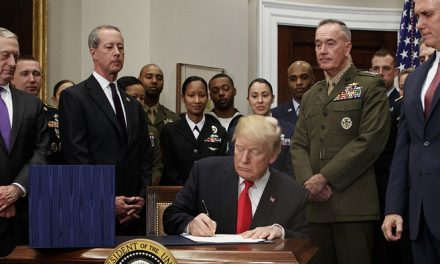Image Credits: Yuri Gripas/Reuters.
On June 22, 2007, Wyoming Democratic Governor Dave Freudenthal chose Republican John Barrasso as an interim replacement for Republican Senator Craig Thomas, who had recently died. Freudenthal probably would have preferred to select a Democrat but his hands were tied. According the state law, he had to choose someone from Craig’s party, and he therefore had to select one of three names supplied to him by the central committee of the state GOP. There are several other states that have restrictions like this. On the blue side, both Maryland and Hawaii have the requirement that an interim replacement be of the same party as the departed senator. On the red side, there is Arizona, Utah, and North Carolina. There are 14 states that don’t ban or restrict their governor’s ability to appoint temporary replacements and instead force a quick special election to fill a vacancy.
Some people have suggested that Elizabeth Warren would be a poor choice as Joe Biden’s running mate because Massachusetts has a Republican governor who would choose a Republican to replace her. This is true but it can be a little misleading. Under Massachusetts law, when a vacancy occurs in one of its two U.S. Senate seats, the governor is required to call for a Special Election. Were Elizabeth Warren elected vice-president, she would need to resign her seat no later than January 20, 2021, which is an odd-numbered year. Under those circumstances, Republican Governor Charlie Baker would have to arrange for a special election to fill the seat in a window of 145 to 160 days, or within about five months.
Section 140. (a) Upon failure to choose a senator or representative in congress or upon creation of a vacancy in that office, the governor shall immediately cause precepts to be issued to the aldermen in every city and the selectmen in every town in the district, directing them to call an election on the day appointed in the precepts for the election of such senator or representative. The day so appointed shall not be more than 160 nor less than 145 days after the date that a vacancy is created or a failure to choose occurs. Filing a letter of resignation creates a vacancy under this section, even if the resignation is not effective until some later time, but the date of the election to fill a vacancy under this section shall be after the resignation is effective.
Under subsection (f) of Section 140, Baker could choose an interim replacement for Warren who would serve from January into June at the latest.
(f) Upon failure to choose a senator in congress or upon a vacancy in that office, the governor shall make a temporary appointment to fill the vacancy; provided, however, that the person so appointed shall serve until the election and qualification of the person duly elected to fill the vacancy pursuant to subsection (a) or (c).
Many commentators have warned that important momentum could be lost if a Republican is serving in Warren’s seat even if only for five months. Theoretically, it could cost the Democrats control of the Senate during that period, complicating Biden’s ability to confirm his cabinet or fill other key positions and blocking his legislative agenda. The Democrats also feel burned from the experience of Scott Brown, who unexpectedly won election after being appointed as the interim replacement for Teddy Kennedy.
There’s a simple solution for this, however. The Massachusetts legislature is overwhelmingly Democratic. The state Senate has 34 Democrats, five Republicans, and two vacancies. The state House has 126 Democrats, 31 Republicans, one independent, and two vacancies. These majorities are more than sufficient to override any gubernatorial veto. All the legislature has to do is look at the example of what the Republicans have done in North Carolina.
In 2018, Republican supermajorities in the state legislature changed the law so that Democratic Governor Roy Cooper, much like Wyoming Governor Dave Freudenthal before him, would have to choose from a list of three individuals submitted by the executive committee of the state Republican Party. This strengthened the preexisting requirement in North Carolina that the governor choose someone from the same party as the departed senator.
If the Democrats of Massachusetts want Warren to get the best shot at joining Biden’s ticket, they should immediately pass a similar law. Even the lesser requirement that Baker pick a Democratic replacement would be sufficient to prevent a temporary or permanent loss of Senate control. Yet, if the Republicans of North Carolina have no compunction about insisting on forcing a list on their governor, I see no reason for the Democrats of Massachusetts to feel any shame or squeamishness about doing the same.
Also, John Barrasso is still in the Senate, representing Wyoming, 13 years after he was foisted on Governor Freudenthal. That shows the power of incumbency, even if begins on an interim basis. This is another reason to avoid another Scott Brown scenario. He ultimately lost to Warren, but not before winning the right to serve out Kennedy’s full term.
Too often, the Republicans play hardball while the Democrats play tiddlywinks. You don’t have to prefer Elizabeth Warren to see the merit in changing the Massachusetts law. Sure, it would be a demonstration or raw partisan power, but it’s not illegal or unconstitutional. And there’s no rationale for the Republicans to use these tactics while the Democrats sit on their hands and worry about things will look.







